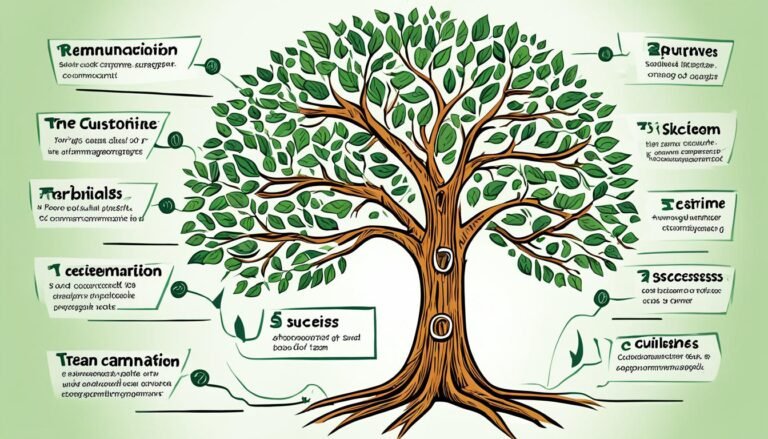Self-control as a Soft Skill
Mastering self-control as an essential soft skill is vital for your personal and professional growth. It enables you to manage impulses and emotions effectively, leading to better decision-making and improved relationships. Developing self-discipline is key to success, helping you resist impulsive reactions and enhance resilience. By honing self-control, you empower yourself to make well-thought-out decisions, regulate emotions, and navigate challenges with grace. Dive deeper into understanding the benefits, impact on decision-making, and strategies for cultivating self-control for a more fulfilling journey towards greater self-awareness and success.
Key Takeaways
- Essential for personal and professional growth, enhancing decision-making abilities.
- Empowers individuals to regulate impulses, improving relationships and resilience.
- Critical for emotional regulation, managing stress and emotional responses effectively.
- Cultivating self-discipline is key, leading to better outcomes and success.
- Guides actions and choices, incorporating critical thinking and logical reasoning.
Understanding Self-Control
Understanding self-control is essential for personal and professional growth as it empowers individuals to regulate their impulses and make conscious decisions. Emotional regulation plays a critical role in self-control, enabling you to manage your feelings in challenging situations. By developing emotional regulation skills, you can prevent impulsive reactions and make rational choices based on thoughtful consideration rather than immediate emotions.
Self-discipline is another key component of self-control. It involves the ability to stick to a plan, persevere through obstacles, and resist temptations that may derail your progress. Cultivating self-discipline allows you to stay focused on your goals, even when faced with distractions or setbacks. This skill is important for achieving long-term success in both personal and professional endeavors.
Benefits of Self-Control
When you exercise self-control, you enhance your ability to make sound decisions and navigate complex situations with clarity.
By mastering this soft skill, you can regulate your emotions effectively, leading to improved relationships and increased resilience in the face of challenges.
Embracing self-control empowers you to achieve greater success in both your personal and professional endeavors.
Improved Decision-Making Skills
Developing self-control can lead to a significant enhancement in your ability to make well-thought-out decisions. By honing your self-control, you can better recognize and overcome cognitive biases that may cloud your judgment. This improved clarity allows for more effective critical thinking, enabling you to evaluate situations more objectively and make sound choices.
Self-control empowers you to resist impulsive reactions driven by emotions or external pressures, giving you the space to weigh options carefully and consider long-term consequences. Enhanced decision-making skills resulting from self-control can lead to better outcomes in both personal and professional domains.
Embracing self-control not only sharpens your cognitive abilities but also equips you with the tools to navigate complex decision-making scenarios with confidence.
Better Emotional Regulation
Improving your self-control can lead to more effective emotional regulation, enhancing your ability to navigate challenging situations with composure and clarity.
By honing your self-control skills, you can better manage stress and regulate your emotional responses, fostering a more balanced and controlled demeanor.
This heightened emotional intelligence allows you to understand and manage your own emotions more effectively, leading to improved interactions with others and a more harmonious environment.
Through practicing self-control, you can develop the resilience needed to stay composed under pressure, make rational decisions, and maintain positive relationships.
This increased emotional regulation not only benefits your mental well-being but also enhances your overall performance in both personal and professional settings.
Impact on Decision Making
When it comes to decision-making, self-control plays an essential role in guiding your actions and choices. By maintaining self-control, you can engage in a rational decision-making process, weighing the pros and cons before making a choice.
Implementing impulse control strategies can help you resist immediate temptations and make decisions that align with your long-term goals.
Rational Decision-Making Process
The rational decision-making process plays a critical role in shaping the outcomes of various decisions made in both personal and professional contexts. By incorporating critical thinking and logical reasoning, individuals can evaluate situations objectively, weigh the available options, and choose the most suitable course of action.
This process involves gathering relevant information, analyzing it thoughtfully, considering potential consequences, and arriving at a well-thought-out decision. Rational decision-making helps in minimizing impulsive choices and enhances the likelihood of achieving desired outcomes.
It enables you to make informed decisions based on facts rather than emotions, leading to more effective problem-solving and goal achievement. Embracing this methodical approach can significantly improve the quality of your decision-making and positively impact your overall success.
Impulse Control Strategies
To enhance your decision-making process and minimize impulsive choices, implementing effective impulse control strategies is essential. Mindful breathing, a technique that involves focusing on your breath to bring attention to the present moment, can help you regain control over impulsive urges. By taking a few deep breaths and centering yourself, you can better assess the situation and make a thoughtful decision rather than acting on impulse.
Additionally, practicing delayed gratification, where you resist immediate rewards for long-term benefits, can strengthen your ability to control impulses. By understanding the value of waiting and considering the consequences of impulsive actions, you can make more rational and strategic decisions that align with your goals and values.
Developing Self-Control Habits
Developing self-control habits requires consistent practice and intentional effort to strengthen your willpower and discipline. To cultivate self-control effectively, consider incorporating the following strategies:
- Set Clear Goals: Define specific objectives that align with your self-control development.
- Practice Mindful Breathing: Engage in deep breathing exercises to center yourself and enhance self-awareness.
- Establish Routine: Create a structured daily schedule to reinforce positive behaviors.
- Reward Progress: Celebrate small victories to motivate yourself along the way.
- Reflect Regularly: Take time to assess your actions and adjust habits as needed for continuous improvement.
Strategies for Self-Regulation
To enhance your self-control further, implementing strategies for self-regulation is key to maintaining discipline and achieving your goals consistently. Mindfulness practice is a powerful technique that can help you stay focused and present in the moment, allowing you to make more deliberate choices rather than acting impulsively. By incorporating mindfulness into your daily routine, such as through meditation or deep breathing exercises, you can increase your self-awareness and better regulate your emotions and behaviors.
In addition to mindfulness practice, effective time management techniques are essential for self-regulation. By setting clear goals, prioritizing tasks, and creating a structured schedule, you can avoid procrastination and stay on track towards achieving your objectives. Utilizing tools like to-do lists, calendars, and time-blocking methods can help you allocate your time efficiently and reduce distractions that may lead to impulsive actions.
Overcoming Impulse Control
Overcoming impulse control requires intentional awareness of your triggers and proactive strategies to redirect your immediate reactions towards more deliberate responses. Impulse management is vital in developing self-discipline techniques that can help you navigate situations where quick decisions might lead to undesirable outcomes.
Here are some key strategies to aid you in overcoming impulse control:
- Mindfulness Practices: Engage in mindfulness techniques such as deep breathing or meditation to increase your awareness of your thoughts and emotions in the present moment.
- Pause Before Reacting: Train yourself to pause and take a moment before reacting impulsively to a situation, allowing yourself time to reflect on the consequences of your actions.
- Identify Triggers: Recognize the specific triggers that often lead to impulsive behavior, enabling you to anticipate and manage them more effectively.
- Develop Healthy Habits: Cultivate healthy habits that promote self-control, such as regular exercise, sufficient sleep, and a balanced diet.
- Seek Support: Don't hesitate to seek support from friends, family, or a professional if you find overcoming impulse control challenging.
Self-Control in Stressful Situations
In high-pressure situations, maintaining self-control is essential for making rational decisions and avoiding impulsive actions that may lead to unfavorable outcomes. Stress management plays a pivotal role in helping individuals navigate challenging circumstances with composure.
When faced with stress, it's important to practice emotional resilience, which involves the ability to adapt to stressful situations without losing control over your emotions. By developing emotional resilience, you can better regulate your responses to stressors, enabling you to stay focused and make sound judgments even when under pressure.
Effective stress management techniques, such as deep breathing exercises, mindfulness practices, or engaging in physical activities, can help you maintain self-control in stressful situations. These strategies can assist in reducing the intensity of your emotional reactions, allowing you to approach challenges with a clear and level-headed mindset.
Cultivating emotional resilience through stress management not only enhances your ability to handle pressure but also fosters personal growth and adaptability in the face of adversity.
Building Resilience Through Self-Discipline
Managing high-pressure situations successfully requires not only maintaining self-control but also building resilience through self-discipline. Building resilience and mental toughness can help you navigate challenges with grace and determination. Here are some key ways to enhance your resilience through self-discipline:
- Setting Clear Goals: Establishing clear, achievable goals provides a roadmap to follow during tough times, helping you stay focused and motivated.
- Developing Healthy Habits: Prioritizing self-care, exercise, and healthy eating habits can greatly boost your mental resilience and overall well-being.
- Practicing Mindfulness: Incorporating mindfulness techniques into your daily routine can help you manage stress, enhance self-awareness, and build emotional resilience.
- Seeking Support: Building a strong support system of friends, family, or mentors can provide you with the encouragement and guidance needed to bounce back from setbacks.
- Learning from Setbacks: Embracing failures as learning opportunities rather than defeats can cultivate resilience and instill a sense of perseverance in the face of adversity.
Cultivating Self-Control in Daily Life
To enhance your daily effectiveness and decision-making skills, cultivating self-control is a fundamental aspect that can lead to improved outcomes and personal growth. By incorporating self-discipline techniques into your daily practice, you can begin to develop a stronger sense of impulse management and self-awareness.
One effective self-discipline technique is setting clear goals and creating a structured routine to follow. This can help you stay focused and avoid distractions that may lead to impulsive decisions. Additionally, practicing mindfulness and being present in the moment can enhance your self-awareness, enabling you to recognize triggers that may challenge your self-control.
Consistent daily practice of these self-discipline techniques is key to cultivating self-control in your daily life. It requires commitment and perseverance, but the benefits of improved decision-making, increased productivity, and personal growth make it a worthwhile endeavor. Remember, self-control is like a muscle that strengthens with exercise, so embrace the challenge and watch how it positively impacts various aspects of your life.
Conclusion
You now possess the ultimate superpower – self-control. With this soft skill, you can conquer any challenge, make wise decisions, and resist temptations with ease. Your ability to regulate yourself is unmatched, making you a force to be reckoned with in all aspects of life.
So go forth and harness your self-discipline, knowing that nothing can stand in your way. Embrace the power of self-control and watch as you soar to new heights of success and fulfillment.








